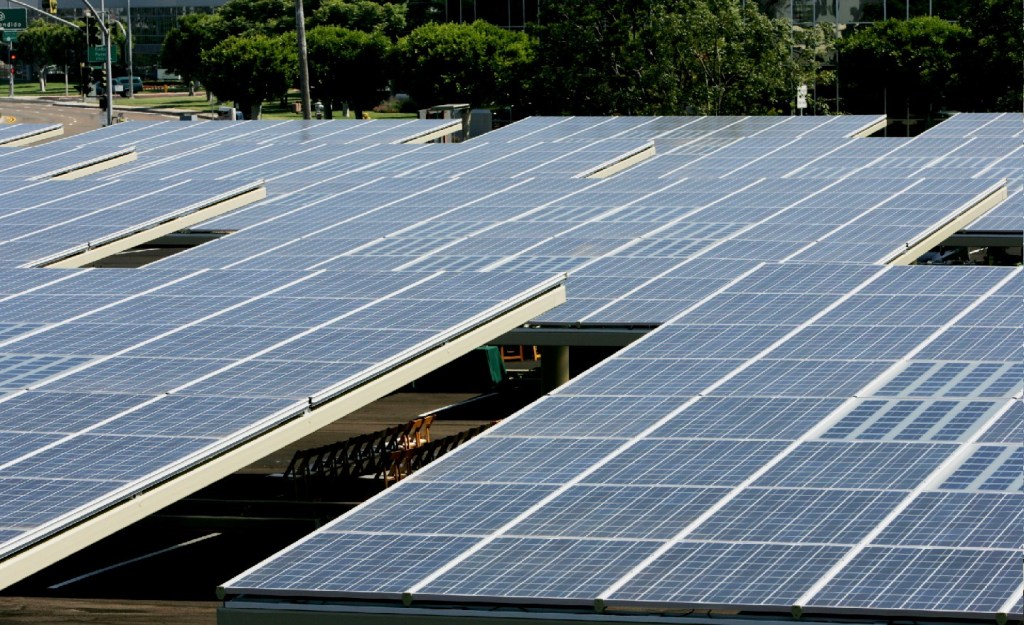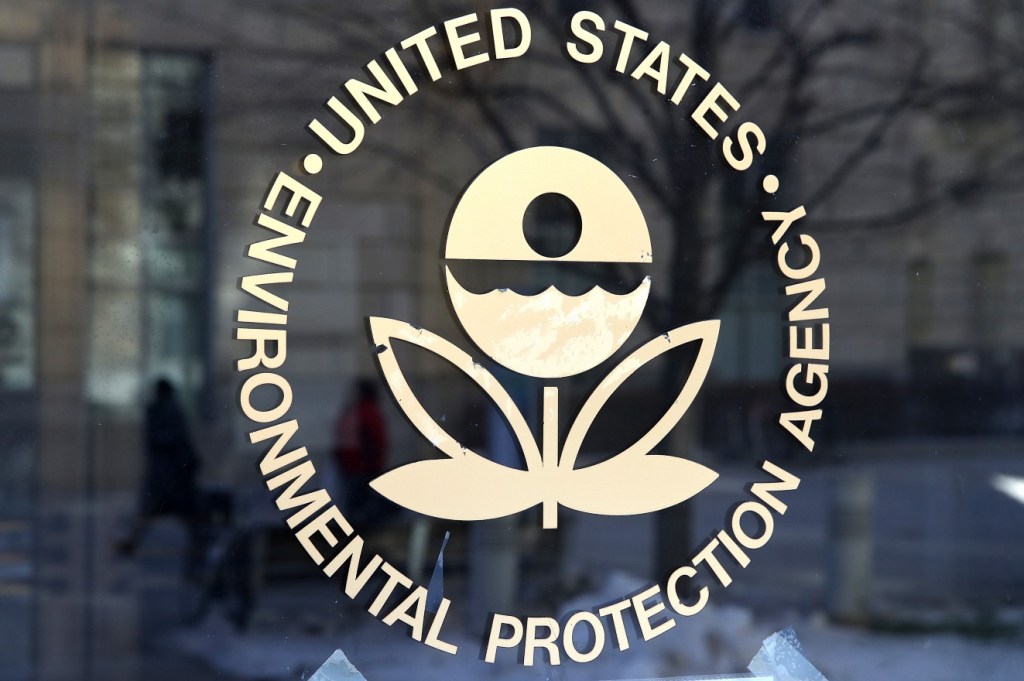Overnight Energy & Environment — Biden makes return to pre-Trump national monument boundaries official
Welcome to Friday’s Overnight Energy & Environment, your source for the latest news focused on energy, the environment and beyond. Subscribe here: digital-staging.thehill.com/newsletter-signup.
Today we’re looking at the official restoration of three national monuments’ boundaries, an Energy Department on solar energy and a lawsuit from a former EPA adviser.
For The Hill, we’re Rachel Frazin and Zack Budryk. Write to us with tips: rfrazin@digital-staging.thehill.com and zbudryk@digital-staging.thehill.com. Follow us on Twitter: @RachelFrazin and @BudrykZack.
Let’s jump in.
Biden invokes native rights in restoration of national monuments

President Biden on Friday officially restored environmental protections that were rolled back by former President Trump — signing proclamations to restore the boundaries of two Utah monuments and ban commercial fishing in a Northeast marine monument.
Biden, in explaining his decision, invoked native rights, calling one of the Utah monuments, Bears Ears, “a place of healing … a place of reverence, a sacred homeland to hundreds of generations of native peoples.”
What else did he say? “Nearly one in three Americans live in a community that was struck by weather disasters just in the last few months,” Biden said. “Both the Build Back Better plan and my bipartisan infrastructure agreement are going to make critical investments, significantly increasing the resilience to these devastating effects on the climate crisis.”
Trump had reduced the size of Bears Ears, designated by then-President Obama, by about 85 percent, and Grand Staircase-Escalante, designated by then-President Clinton, by nearly half.
He also decided to open up the Northeast Canyons and Seamounts Marine National Monument, off the New England coast, for commercial fishing.
The White House announced late Thursday that Biden would restore Grand Staircase-Escalante to its pre-Trump boundaries, prohibit commercial fishing in the marine monument and phase out red crab and lobster fishing.
For Bears Ears, it will return to preserving all of the land that was part of the monument before Trump, while retaining land that was added during the Trump years, to make the monument 11,200 acres larger than it was under Obama.
Read more about the announcement here.
Administration announces goal of 5 million homes powered by community solar

The Department of Energy on Friday announced a target of the equivalent of 5 million homes powered by community solar energy by 2025.
The target would save $1 billion and contribute to administration goals of fully renewable electricity by 2035, according to the department.
“Community solar is one of the most powerful tools we have to provide affordable solar energy to all American households, regardless of whether they own a home or have a roof suitable for solar panels,” Energy Secretary Jennifer Granholm said in a statement. “Achieving these ambitious targets will lead to meaningful energy cost savings, create jobs in these communities, and make our clean energy transition more equitable.”
So what is community solar? Sufficient solar power has already been installed to power 19 million households, according to the department, but much of this is unevenly distributed. Under the community solar model, a single solar array provides power that is divided between subscribers in one community. Subscribers share in the revenue, often in the form of discounted billing.
The department emphasized the model’s potential to give low-income people more access to renewable energy. Phasing out fossil fuels in ways that do not disproportionately fall on working- and middle-class people has been a major concern for the Biden administration, which has repeatedly emphasized the job-creation potential of the renewables push.
The U.S. would need to increase community solar generation by more than 700 percent to meet the 2025 target, according to the department.
The report comes a month after the Biden administration published a rough roadmap under which solar power would comprise 45 percent of U.S. electrical generation by 2050. The department’s projections outline three possible scenarios, including one in which the U.S. power grid is 95 percent decarbonized by 2035. The target would require the U.S. to double its solar energy production annually compared to 2020 over the next four years, doubling again from 2025 to 2030.
Read more about the announcement here.
Trump-era EPA board member sues over firing

A former Environmental Protection Agency (EPA) advisory committee member sued the agency Thursday, alleging his dismissal was part of a purge of members with ties to the energy industry.
In the lawsuit, S. Stanley Young, who was appointed to the EPA’s science advisory board in 2017 under then-President Trump, claimed he was fired earlier this year as part of an “unprecedented purge” when the committees were disbanded.
“Through this mass dismissal, EPA guaranteed that the committees will rubber stamp the new administration’s regulations without the inconvenience of an objecting voice from the very industries targeted by those regulations and bearing the cost of those regulations, to the tune of billions of dollars a year,” Young’s complaint alleges. The lawsuit accuses the EPA and Administrator Michael Regan of violating the Federal Advisory Committee Act (FACA), which requires balance in the committee’s composition.
“EPA has never attempted to explain how the composition of these new committees could possibly comply with FACA, nor did EPA acknowledge—much less justify—its departure from its longstanding, bipartisan practice of ensuring industry representation on these two advisory committees,” he added.
The story so far: The Biden administration in March announced the replacement of both the EPA’s Science Advisory Board and its Clean Air Science Advisory Committee.
The EPA’s decision followed criticism that, under Trump, the committees gave outsized influence to industry representatives.
Trump’s first EPA chief, Scott Pruitt, issued a rule in 2017 barring scientists who have been awarded EPA grants from serving on the boards. Pruitt presented the move as an effort to preserve board independence, but detractors pointed to the Trump EPA’s pro-industry environmental policies, as well as Trump’s false claims that climate change is a myth.
Read more about the lawsuit here.
ON TAP NEXT WEEK
On Thursday:
-
The House Natural Resources Committee will hold a hearing on Impacts of Abandoned Offshore Oil and Gas Infrastructure and the Need for Stronger Federal Oversight.
WHAT WE’RE READING
Kirsten Gillibrand Has Deep Ties to Chevron Lawyers Leading Legal Attacks On Steven Donziger, The Intercept reports
United Steelworkers accuse Exxon of union busting at Texas refinery, Reuters reports
Ryan Zinke is Running for Office Again in Montana. On Instagram, He’s Often in Santa Barbara, Politico reports
UN Officially Recognizes A Safe, Sustainable Environment As A Human Right, Forbes reports
Blurred lines: Study warns of invasive-native species hybrids, E&E News reports
ICYMI
House Democrats demand information from Puerto Rican power company following outages
EPA to aim for demand reductions in climate-warming chemicals used in refrigeration
Official: Hundreds of giant sequoias may have been killed by California wildfires
And finally, something offbeat and off-beat: Dirty pool
That’s it for today, thanks for reading. Check out The Hill’s energy & environment page for the latest news and coverage. We’ll see you Monday.
Copyright 2024 Nexstar Media Inc. All rights reserved. This material may not be published, broadcast, rewritten, or redistributed..







